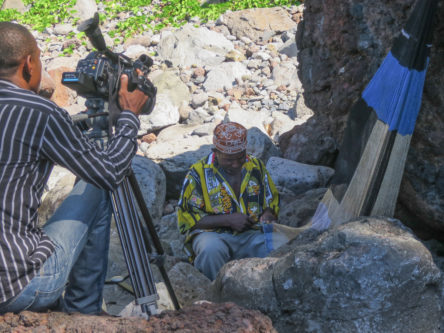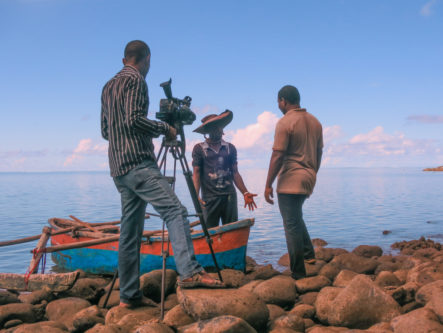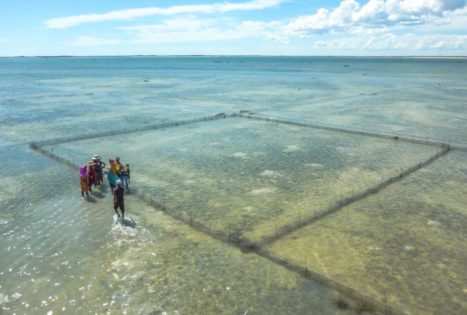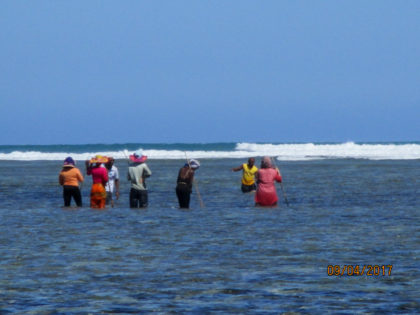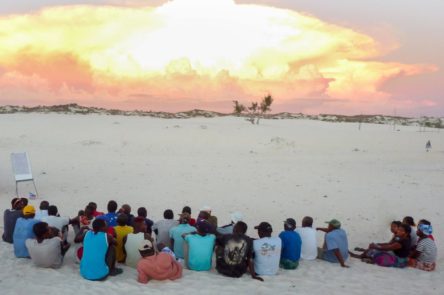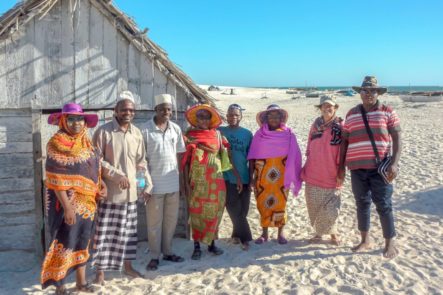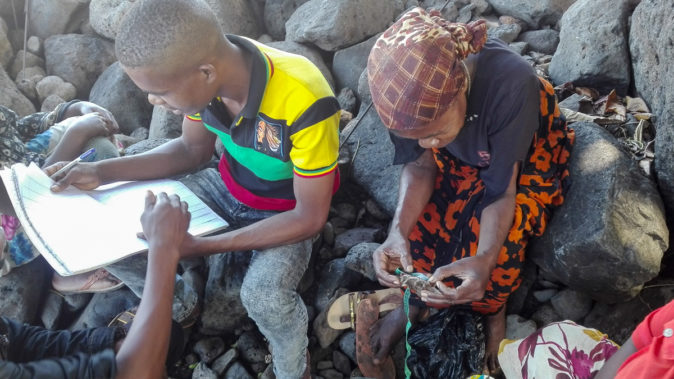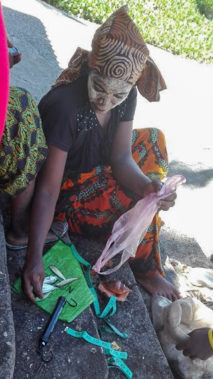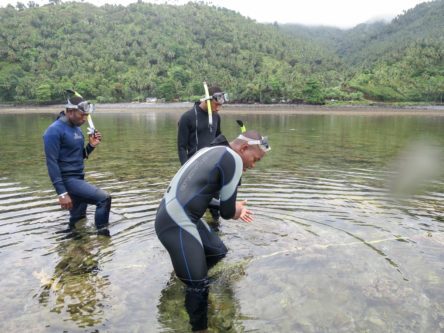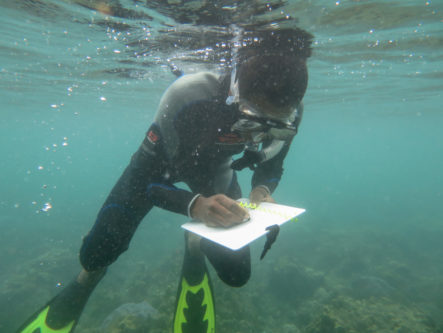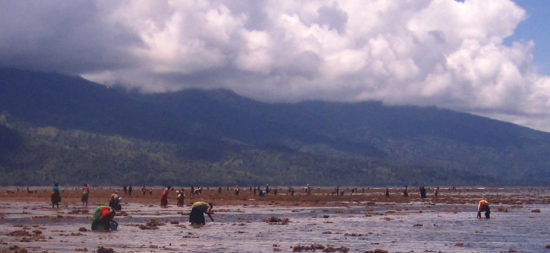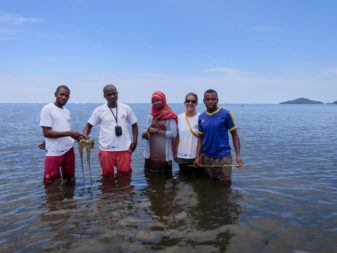2017 was a tremendous year for our partnership with NGO Dahari on the island of Anjouan in the Comoros, where we are working with communities to establish locally led conservation initiatives. For more than two years we have been supporting Dahari to establish a marine programme and assisting communities in the first steps towards managing their fisheries more sustainably. In this blog I’ll be reflecting on our recent progress in laying the foundations for local marine conservation.
We kick-started 2017 with a community film project in Vassy – a fishing village on Anjouan. Community members produced a film about the village’s history and the challenges their fishery currently faces; declining catch, rising population, and fishers’ subsequent inability to earn a stable income. Three village ambassadors – Mouniya, Houdati and Ansoyia – presented the film during the learning exchange visit to the Velondriake Locally Managed Marine Area in southwest Madagascar, which took place in April that year, so that the Malagasy fishing communities could witness their visitors’ lived experience.

The film has also been screened in Vassy
The learning exchange was a fantastic opportunity for the Anjouan fishing community representatives, along with staff from Blue Ventures and Dahari, to discuss the successes and challenges experienced by Velondriake community members in managing their marine resources.
Blue Ventures’ holistic approach recognises that coastal communities face multiple interconnected challenges, and the exchange group witnessed a range of complementary community-led initiatives, including temporary octopus fisheries closures, seaweed and sea cucumber aquaculture, financial savings groups (community members contributing to a savings fund that can be used for small loans), community health provision in maternal healthcare and family planning, and educational youth groups. They also met with members of the management committee of the Velondriake LMMA to learn more about LMMAs and community-led marine management.
The fishing communities in Velondriake face similar challenges to those in Anjouan, and the Comorian fishers were all deeply enthused by the exchange, and excited to share what they had learnt with their own communities.
We need to get together with the other fishers in our community, and explain everything that we saw during this visit, especially about managing marine resources. By combining the ideas of our community with the ones from Madagascar and Dahari we will be able to put a good strategy in place to improve our fishery.”
– Mouniya Souf, a fisherwoman from Salamani
Upon their return, the participants of the Madagascar learning exchange, supported by Dahari’s communications team, shared their experiences with their wider communities. These presentations were enthusiastically received, and sparked discussions about the initiatives they wished to implement to resolve key problems in their local fisheries.
While the learning exchange and community consultations were setting the framework for future action in the years to come, the Dahari/Blue Ventures team were also striving toward another goal: wonderful, crucial, exciting data!
Based on these discussions Blue Ventures and Dahari agreed on the activities we could support technically, including the implementation of a periodic reef closure – to be led by a newly formed women’s association in the summer of 2018; training in more sustainable fishing techniques – both for reef gleaners and boat fishers; and strengthening the fishers’ committee through training workshops and technical support.
While the learning exchange and community consultations were setting the framework for future action in the years to come, the Dahari/Blue Ventures team were also striving toward another goal: wonderful, crucial, exciting data! To understand the current status of the fishery, and the impact of any management actions the community decide to put in place, we will need comprehensive baseline data for comparison.
The Dahari/Blue Ventures team therefore trained a new cohort of community catch monitors in time for the peak gleaning season. Anjouan’s traditional fishers fall into two main groups – those that fish from dug-out canoes and those that fish on foot (gleaning). Many Comorian women glean for octopus, fish and shellfish to help feed their families or supplement their household income. The new catch monitors will play an important role in improving our understanding of the health of these fisheries, essential for the development of effective community-based marine conservation. To complement the fisheries data, we also celebrated the completion of socio-economic assessments in four villages!
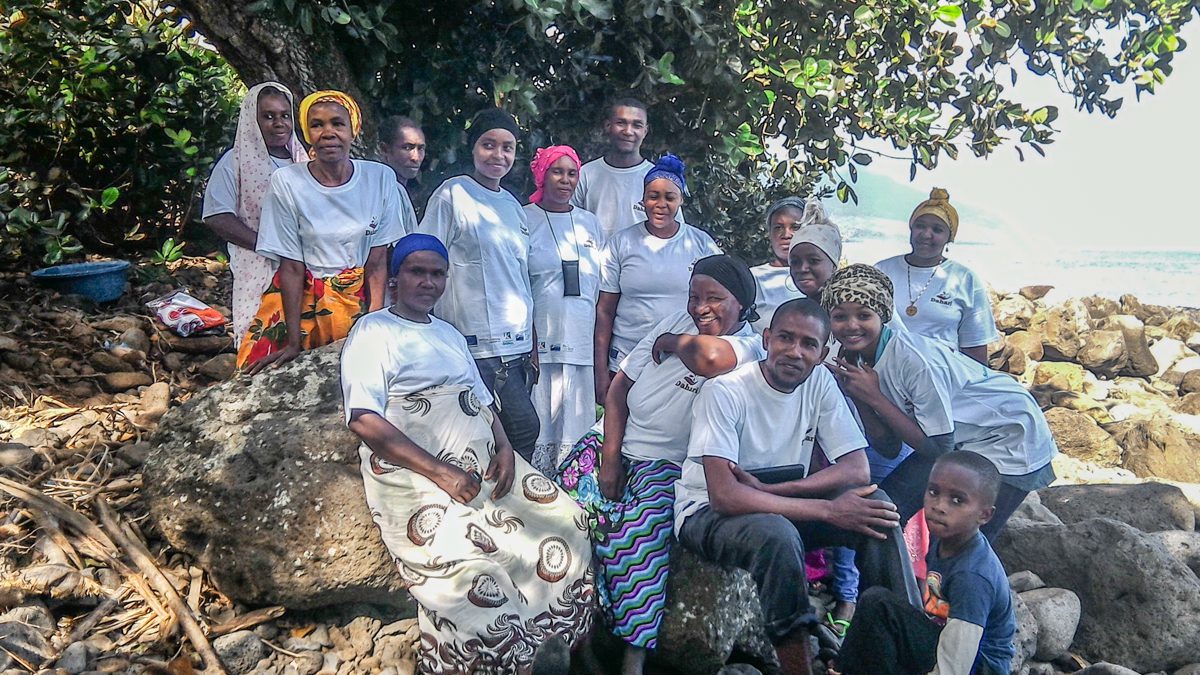
Team meeting of community catch monitors
Always glad to get in the water, the Dahari/Blue Ventures marine team conducted coral reef surveys throughout 2017. The first surveys were qualitative assessments of popular reef fishing grounds near Vassy, and we shared the photos and initial survey results with the community. This data helped to deepen the community’s interest in permanently closing a portion of the fishing grounds, and focused the discussion on the key reef areas in need of conservation. Later on in the year, we conducted quantitative surveys to provide more detailed reef assessments and to identify priority conservation sites.
Community-led resource monitoring often leads to increased engagement in resource management and conservation, as well as providing additional employment opportunities, so the Dahari/Blue Ventures team were keen to begin training Anjouan community members in reef surveying. This training started with land-based theory before moving onto the reef flats to practise identifying common benthic flora and fauna, and finally into the water for snorkel surveying.

Reef fishing grounds near Vassy
Our team wrapped up the year with a second learning exchange in December, this time to Moheli – a neighbouring island in the Comoros – to observe the opening of a temporary octopus fishery closure. The small community where the opening took place has far fewer gleaners than around the villages of Vassy, Dzindri and Salamani on Anjouan, but nonetheless there were clear benefits to the closure judging from the increased size of the octopus caught. The strong social cohesion within the community and its management associations, as well as clear and consistent communication between everyone involved about the management rules, were key factors in the closure success and the main take-home messages for the visitors.
This exchange was also an opportunity for the freshly trained community catch monitors, and the Dahari/BV team, to share knowledge and experience with the staff from the marine branch of the Moheli National Park. Everyone learned a great deal from each other, and I am confident that this relationship will continue to grow and strengthen throughout this year.
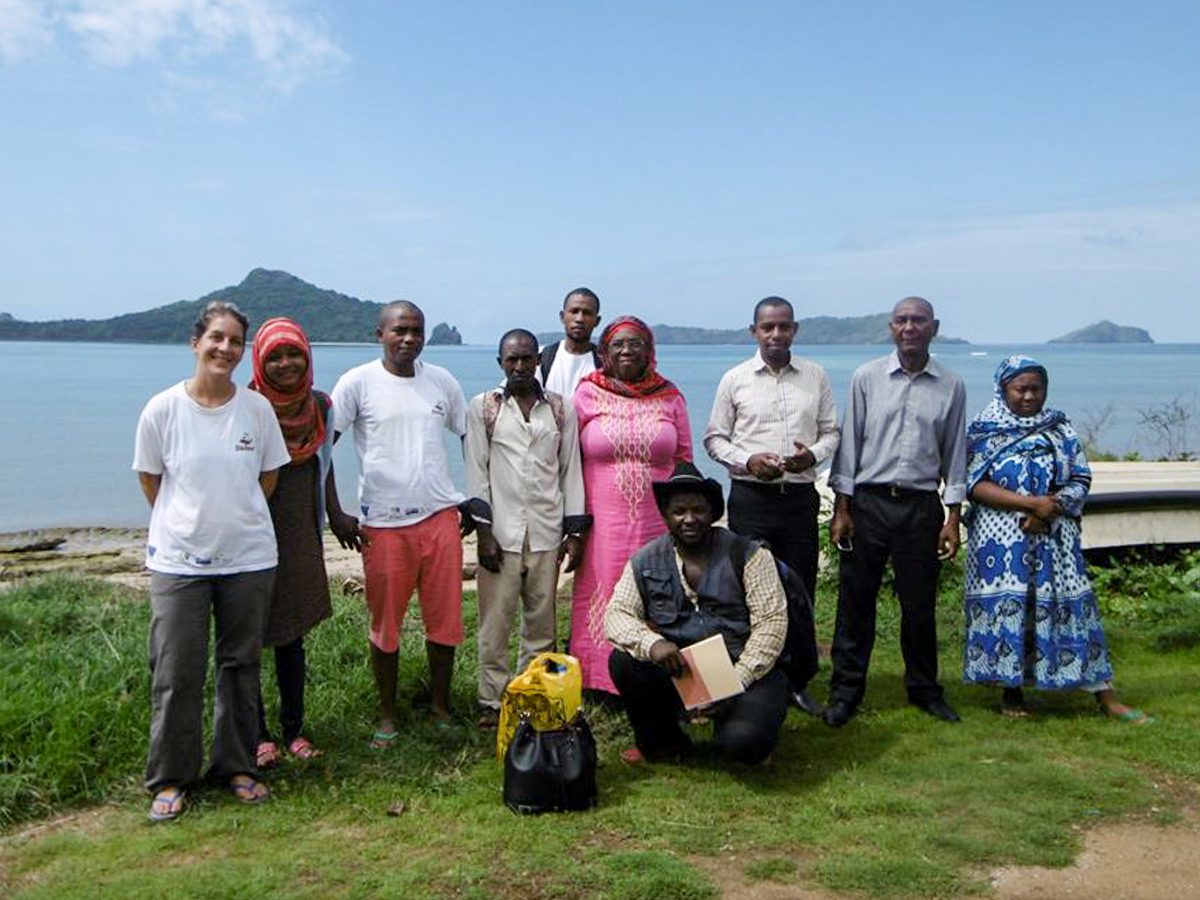
The Dahari/BV team in Moheli Marine Park
It was an exciting and positive year for our partnership with Dahari and the Anjouan communities, and I feel very fortunate to have been involved at this pivotal time. The team’s motivation is strong, our knowledge is increasing with every survey and questionnaire, and plans are being put into action. The wheels have been set in motion towards the implementation of a temporary fishery closure later this year – an exciting prospect – so watch this space!
Blue Ventures’ work in the Comoros is funded by the Critical Ecosystem Partnership Fund (CEPF), a joint initiative of l’Agence Française de Développement, Conservation International, the European Union, the Global Environment Facility, the Government of Japan, the MacArthur Foundation and the World Bank.
All photos in this blog were taken by the author unless otherwise specified. The cover photos was taken by Victoria Jeffers.


